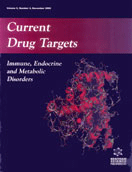Abstract
It is well known that abnormal immune responses may play a pathogenic role in the H. pylori-related gastropathy. Indeed, as far as humoral immune response is concerned, it is still debated whether specific anti-H. pylori antibodies have a protective or noxious effect in infected hosts. Besides proinflammatory cytokines released from macrophages, such as tumor-necrosis factor-α and interleukin-1β, and IFN-γ derived from T-helper 1 lymphocytes, also interleukin-10, a product of T-helper 2 lymphocytes with antiinflammatory properties, seems to be surprisingly involved in the pathogenesis of H. pylori-induced gastritis. In addition, lipopolysaccharide derived from the outher membrane of H. pylori acts as a chemoattractant for monocytes and induces release of free radicals, interleukin-1β, interleukin-6, interleukin-8 and tumor necrosis factor-α. On the other hand, H. pylori lipopolysaccharide could be responsible for the increased polyamine concentrations in the gastric mucosa and polyamines, such as putrescine, spermidine and spermine, could be involved in the increased cell proliferation and consequent possible neoplastic transformation of the gastric mucosa. Incubation of peripheral blood mononuclear cells with H. pylori increases significantly the surface expression of CD95 receptor (Fas), thus suggesting that these bacteria are able to induce apoptosis. In animal models, different types of vaccination have been investigated, including stimulation of nasal and rectal lymphoid tissue, as well as adoptive transfer of T cell from donors immunized with H. pylori. However, results obtained are frequently disappointing. In humans, urease of H. pylori was safely used as oral vaccine in the absence or presence of adjuvants with encouraging results. Finally, DNA vaccines could offer in the future advantages for prophylactic H. pylori eradication, especially where population is infected by this microorganism since childhood.
 1
1


















